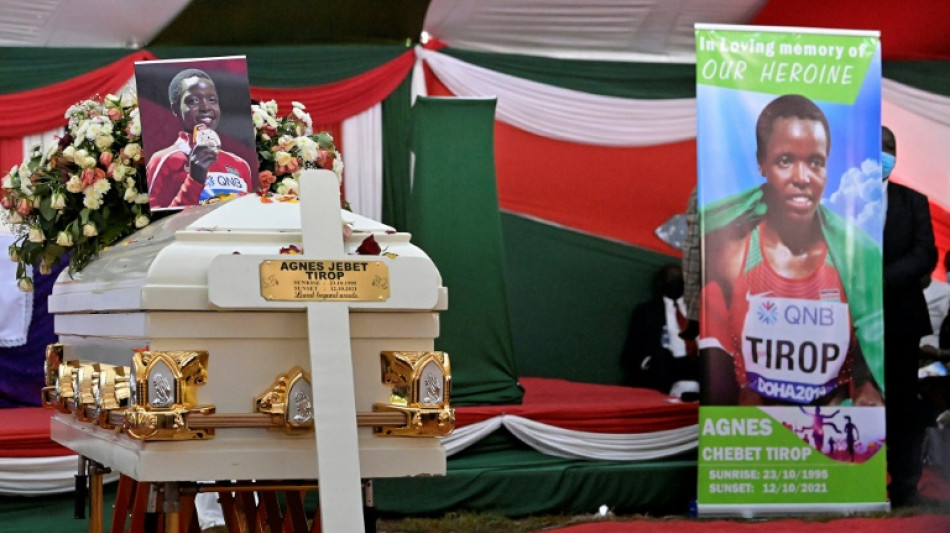

Kenya failing to tackle record-high femicides, activists say
Two years after Kenyan athletics champion Agnes Tirop was stabbed to death, the prime suspect was released on bail and promptly disappeared -- evidence, say activists, of how Kenya fails victims of gender violence.
The Silencing Women Project, an NGO-run initiative, recorded 170 femicides last year in just 10 of the country's 47 counties, "the deadliest year on record for Kenyan women".
Femicide typically refers to murders by a partner, spouse or family member in which the victim's gender plays a key role.
The murder in October 2021 of Tirop, a two-time bronze medallist in the 10,000 metres world championships, has been one of the most high-profile such crimes in recent years.
It has also illustrated the failings of the system.
Tirop's husband, Ibrahim Rotich, 45, was considered the prime suspect, but was released in November 2023 on a bail of 400,000 shillings (around $2,700 at the time).
The father of the victim, Vincent Tirop, says the decision to release him "struck like a thunderbolt".
"We feel betrayed by the same system we thought would help us get justice for our daughter," he told AFP.
The family's lawyer, Richard Warigi, said he tried in vain to block the decision, since Rotich was a clear "flight risk".
Rotich was arrested the day after the murder in the port city of Mombasa, 800 kilometres (500 miles) from the crime scene, following a dramatic manhunt.
But the investigating officer said it was his right to be bailed after two years in custody, Warigi told AFP.
There have since been three court hearings but Rotich, who was supposed to report to police once a week, has disappeared.
"Now he has absconded, and nobody knows where he is," Vincent Tirop said.
- 'Complete negligence' -
If this could happen in the case of a famous athlete, "imagine how cases that are not visible are treated", said women's rights activist Rachael Mwikali.
"It's a failure of the police, a failure of the judiciary and a failure of our government," she said.
Zaha Indimuli, who works with the Silencing Women Project, said there was "complete negligence" in the handling of femicide cases by police.
She said details like dates and times were often recorded incorrectly, that victims were frequently ignored and often had to return to perpetrators for want of shelters.
Those claims were rejected by Inspector General Judy Lamet, head of the Kenyan police's gender unit.
She said police now received extensive training on gender-based violence and there was a toll-free line for people suffering domestic abuse.
Kenya has established three courts dedicated to gender-based violence court since 2022.
But Zaina Kombo of Amnesty International said forensic laboratories and prosecutors' offices were overloaded.
The Silencing Women Project says it takes around four years between cases arriving in court and a verdict.
"There's a snail pace when it comes to (gender-based violence) cases," said Kombo, blaming a "lack of political goodwill".
President William Ruto has promised a gender violence task force, but Kombo said she felt dubious about that pledge.
"Kenya is still a patriarchal society," she said.
- Vigil -
In December a peaceful demonstration against femicide in Nairobi was met with tear gas, with authorities arresting some of the participants.
Meanwhile, femicide cases keep mounting.
A candle-lit vigil was held at a university near Nairobi earlier this month after one student was attacked with a machete and the body of another was found in a water tank.
The appearance of some male students was promising, said one of the organisers, Diana Nekesa.
"I can't say that the majority of (male) students were supporting us, but a good number came," Nekesa said.
But others, who are "chauvinist and rooted in the masculine domination" denounced the vigil, she added.
Ch.Hutcheson--NG



